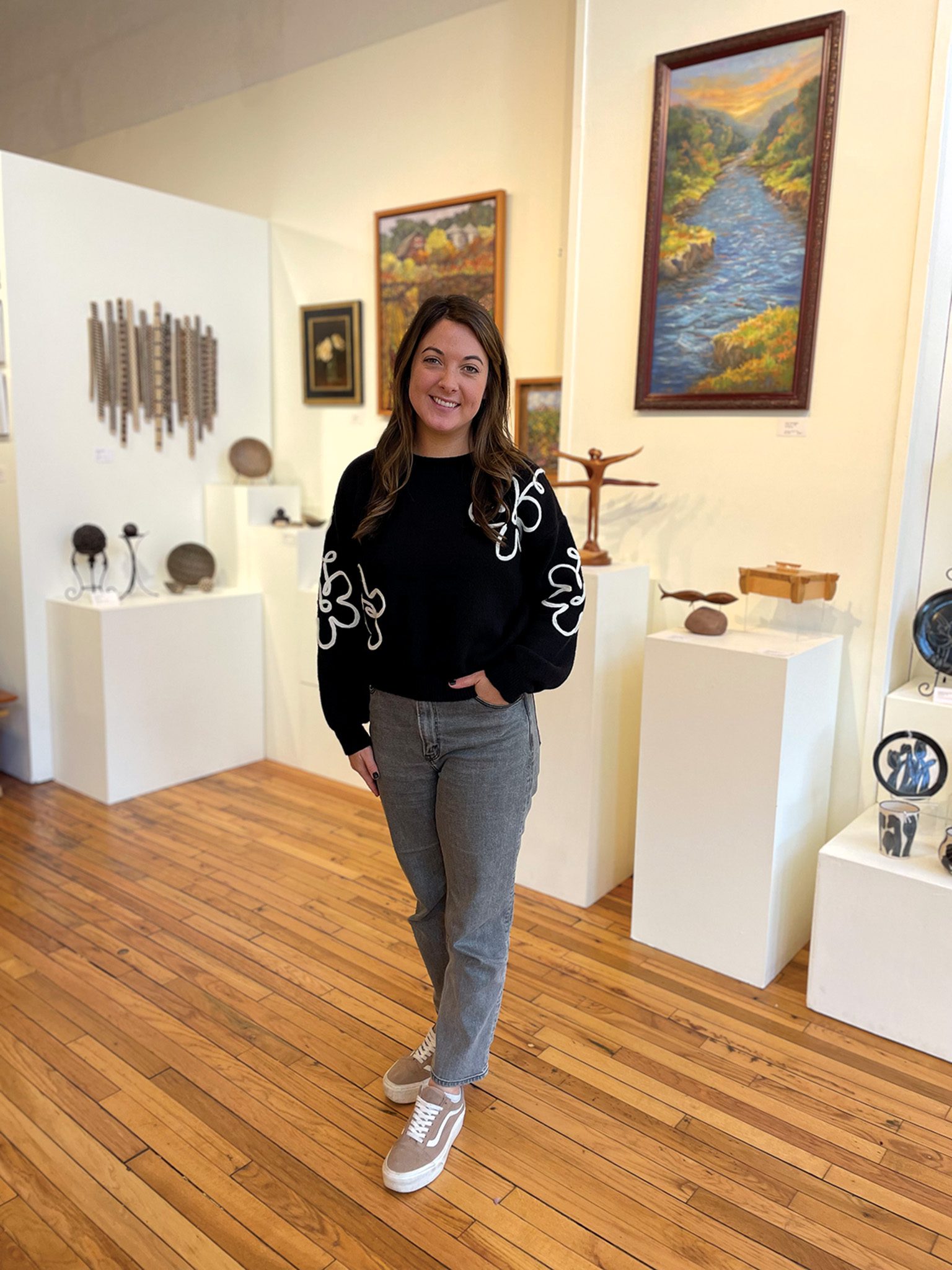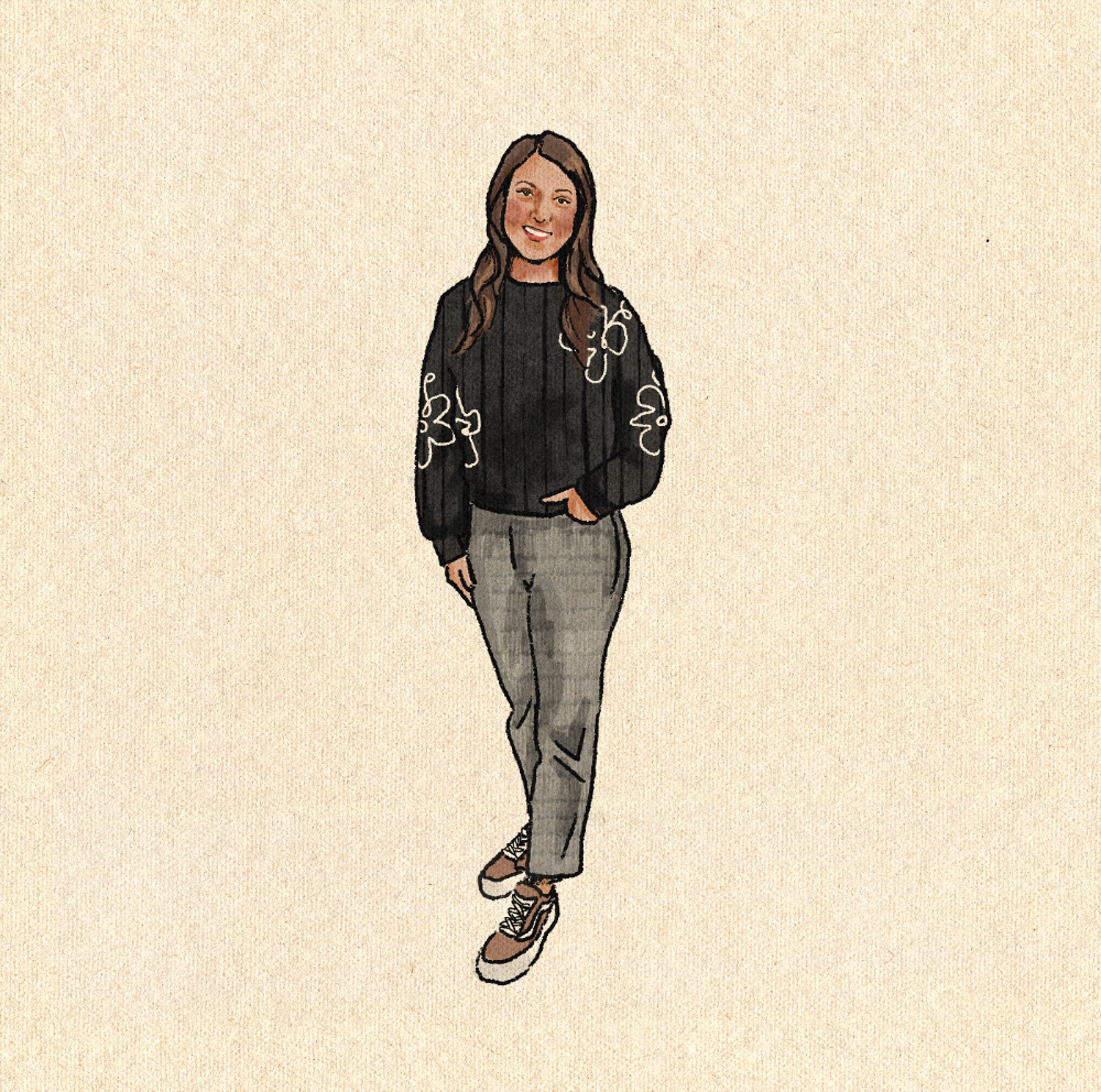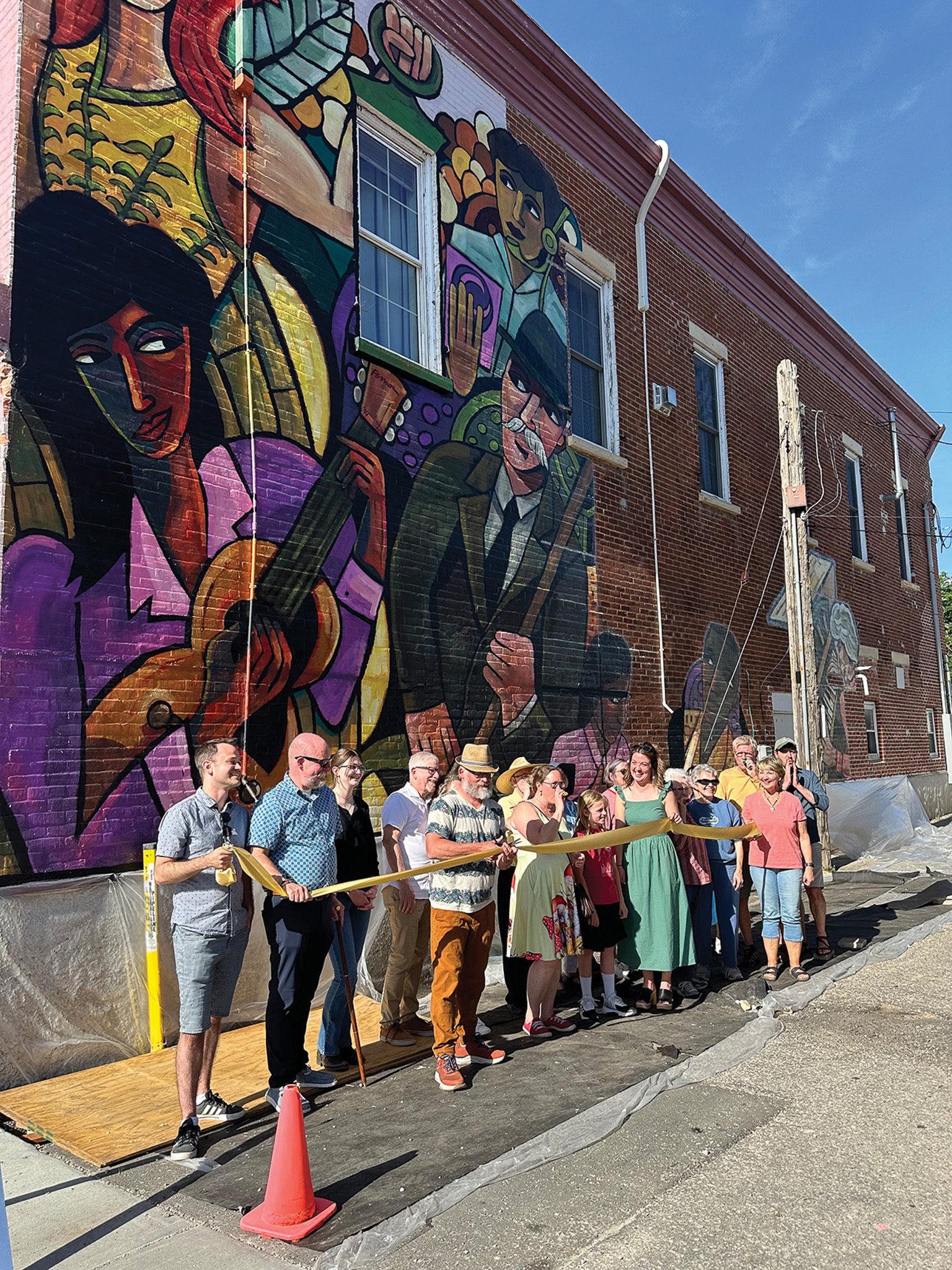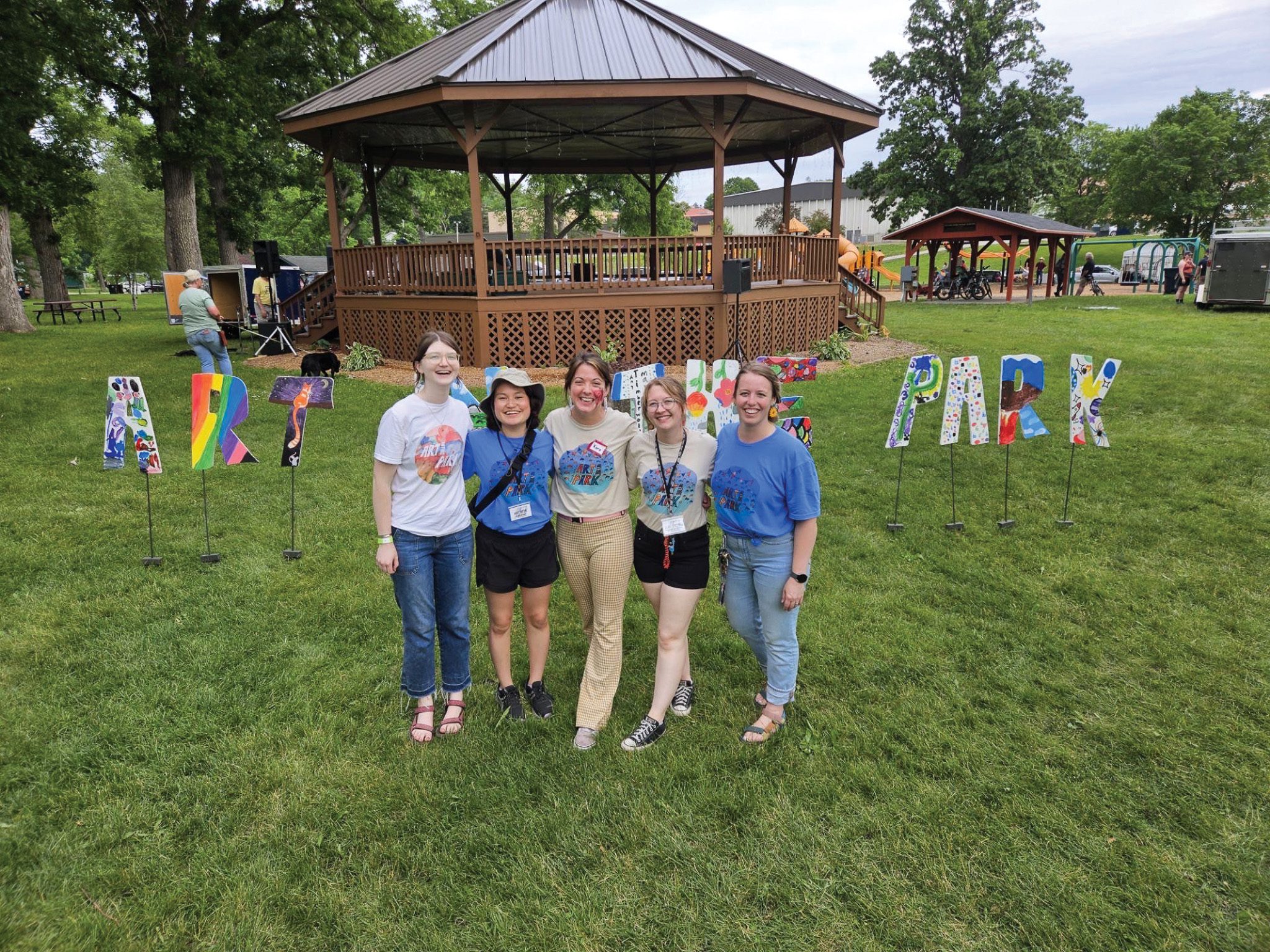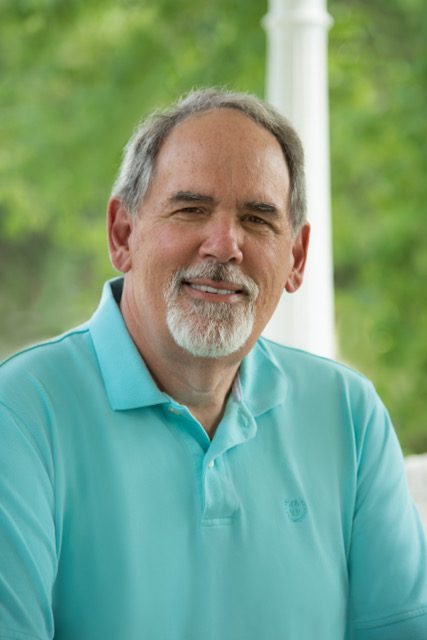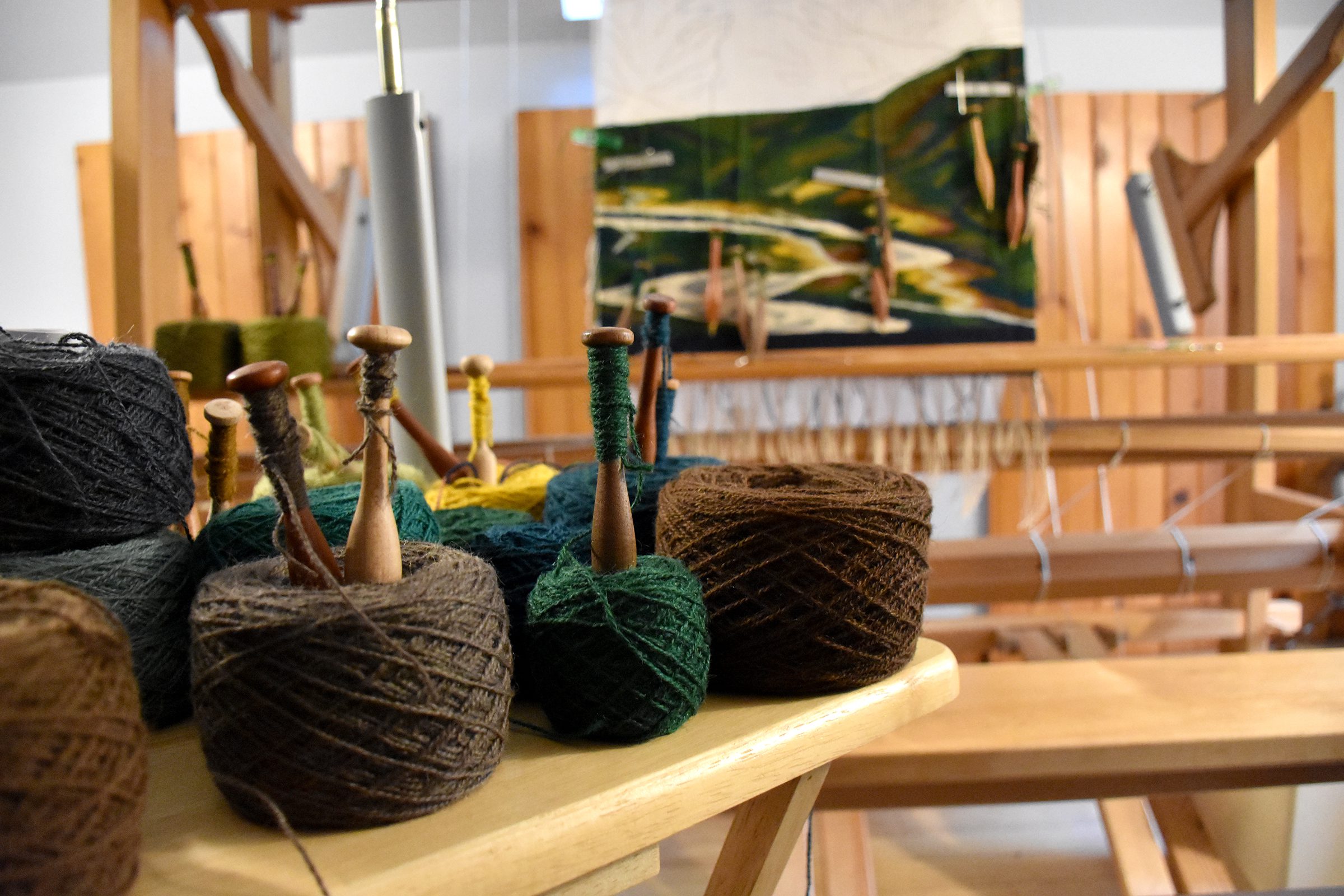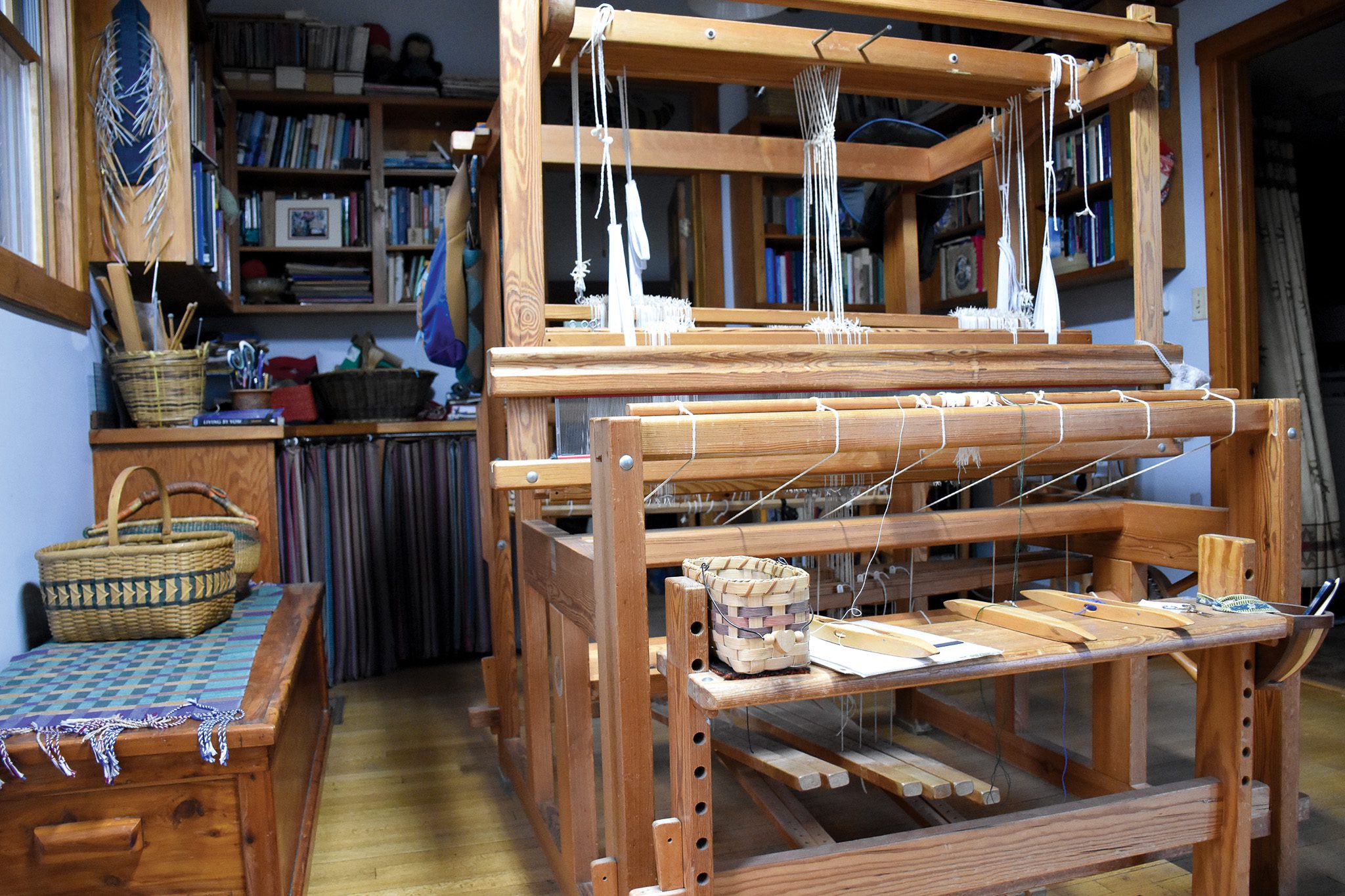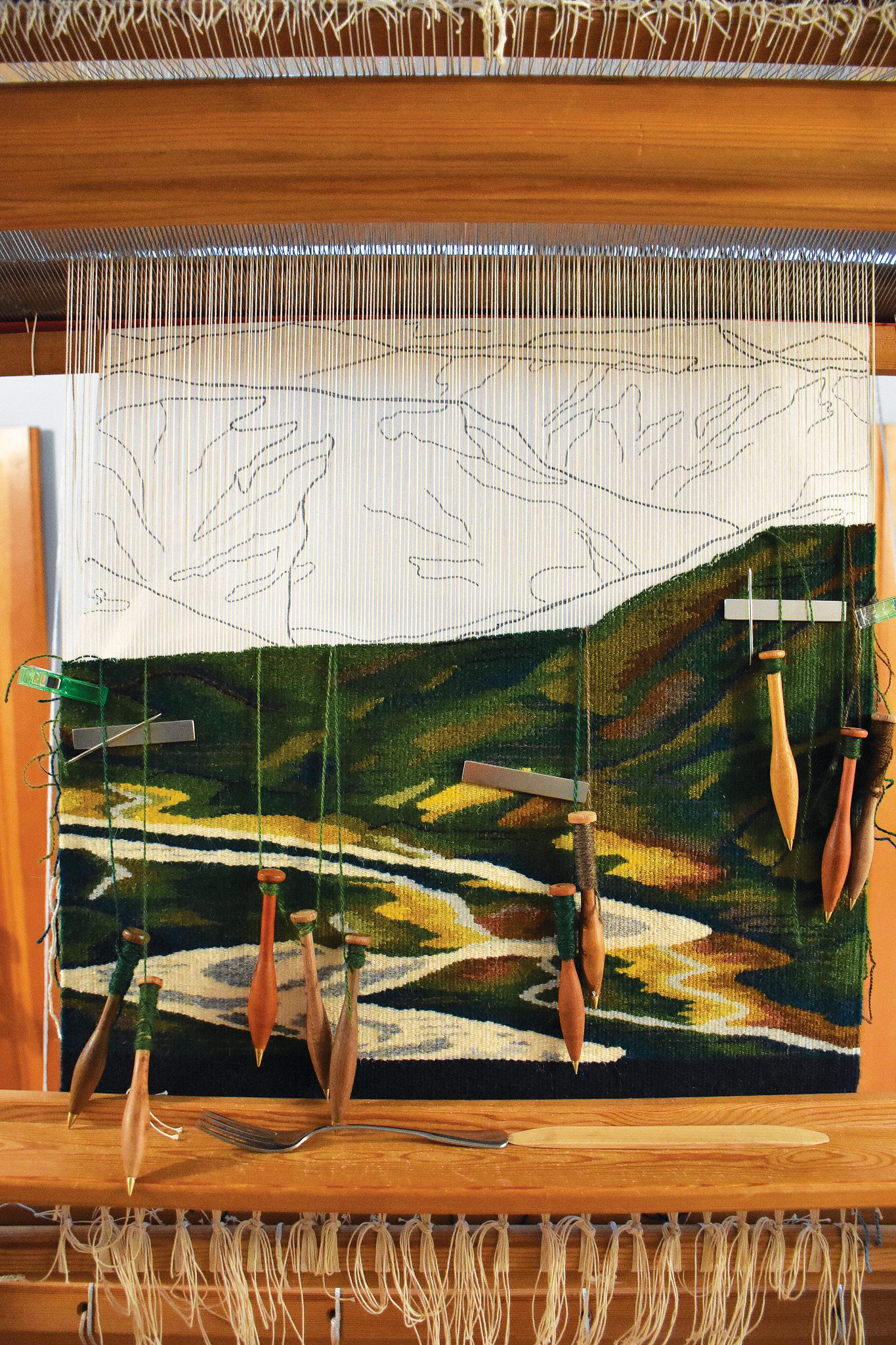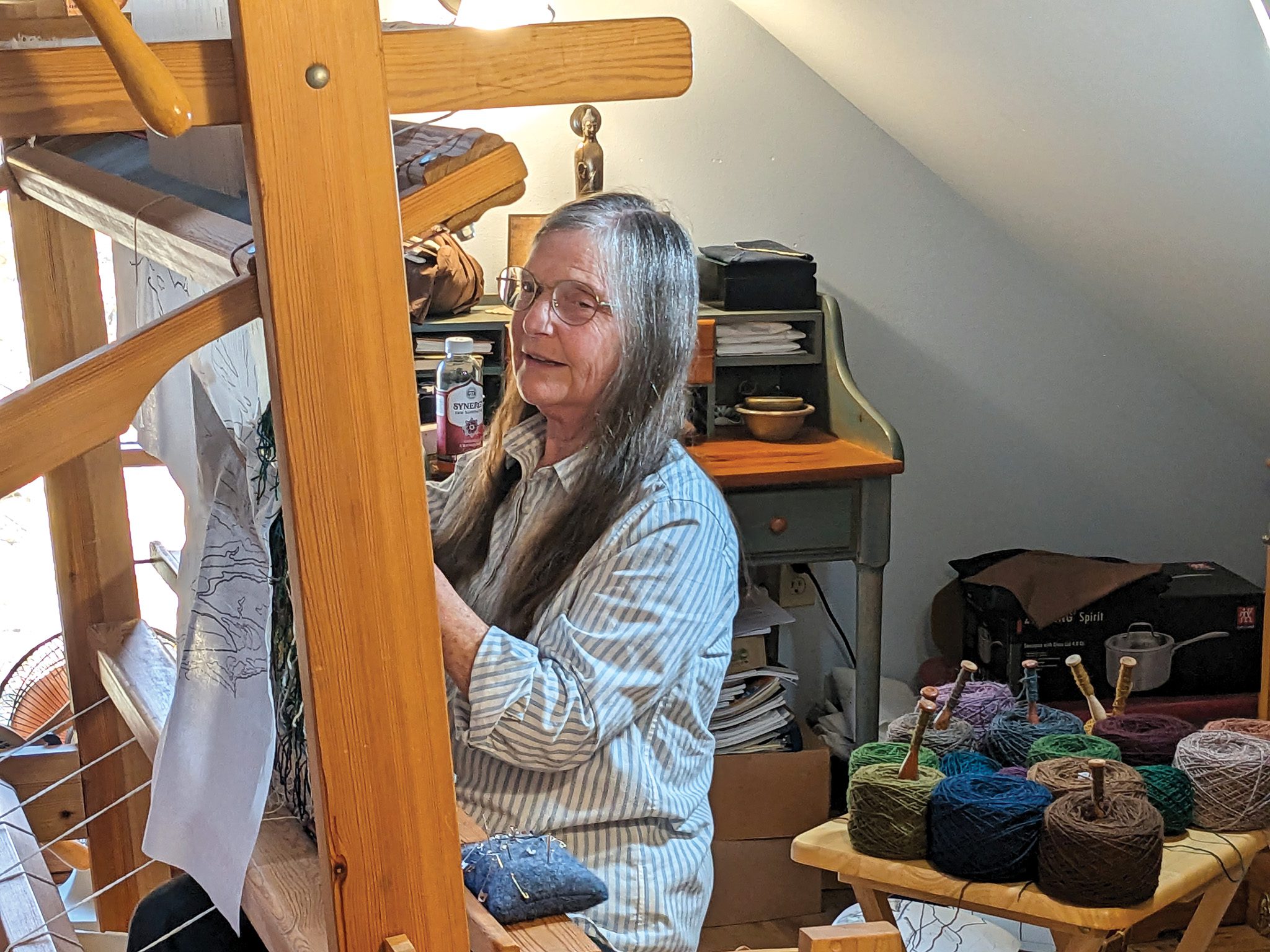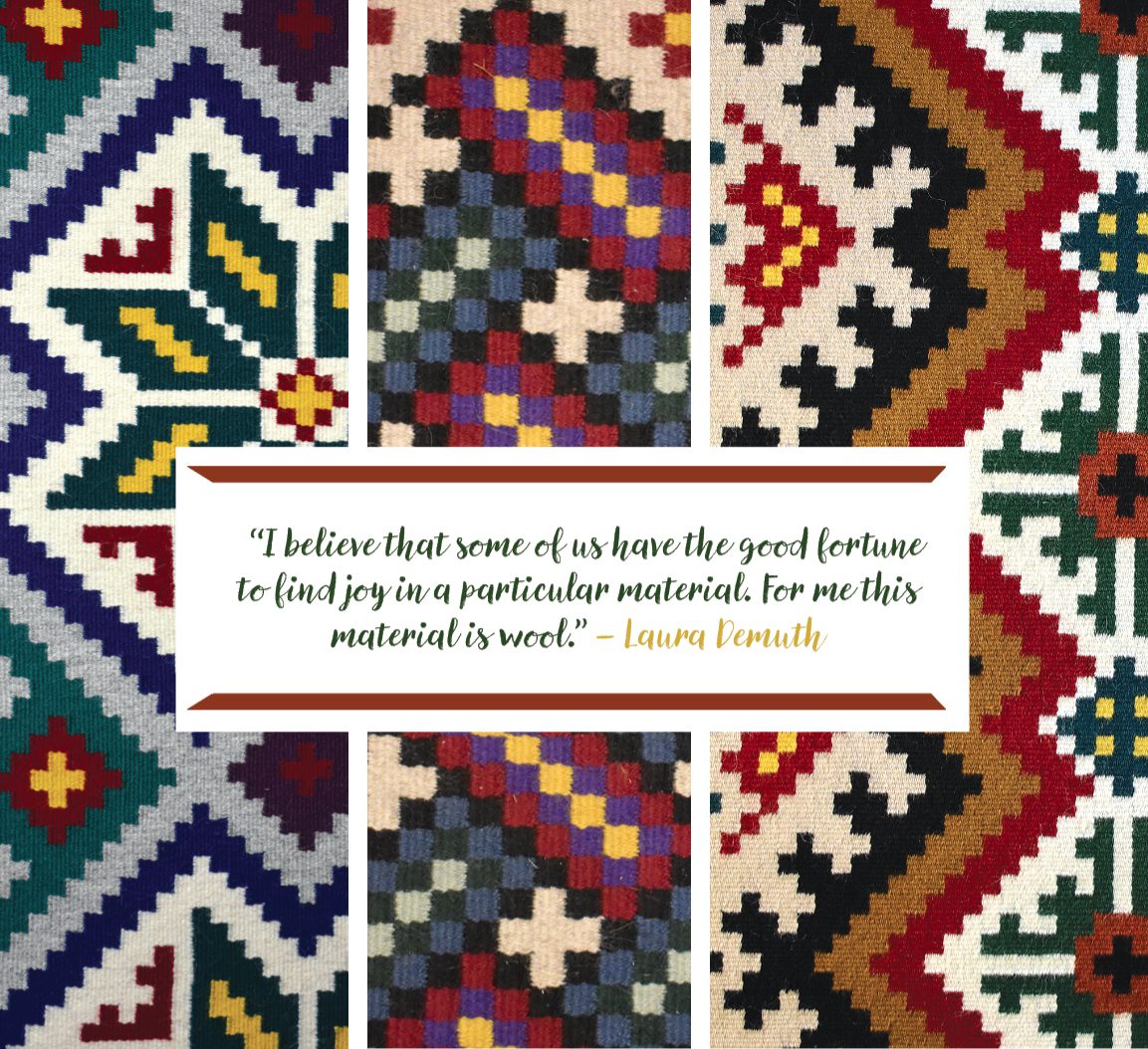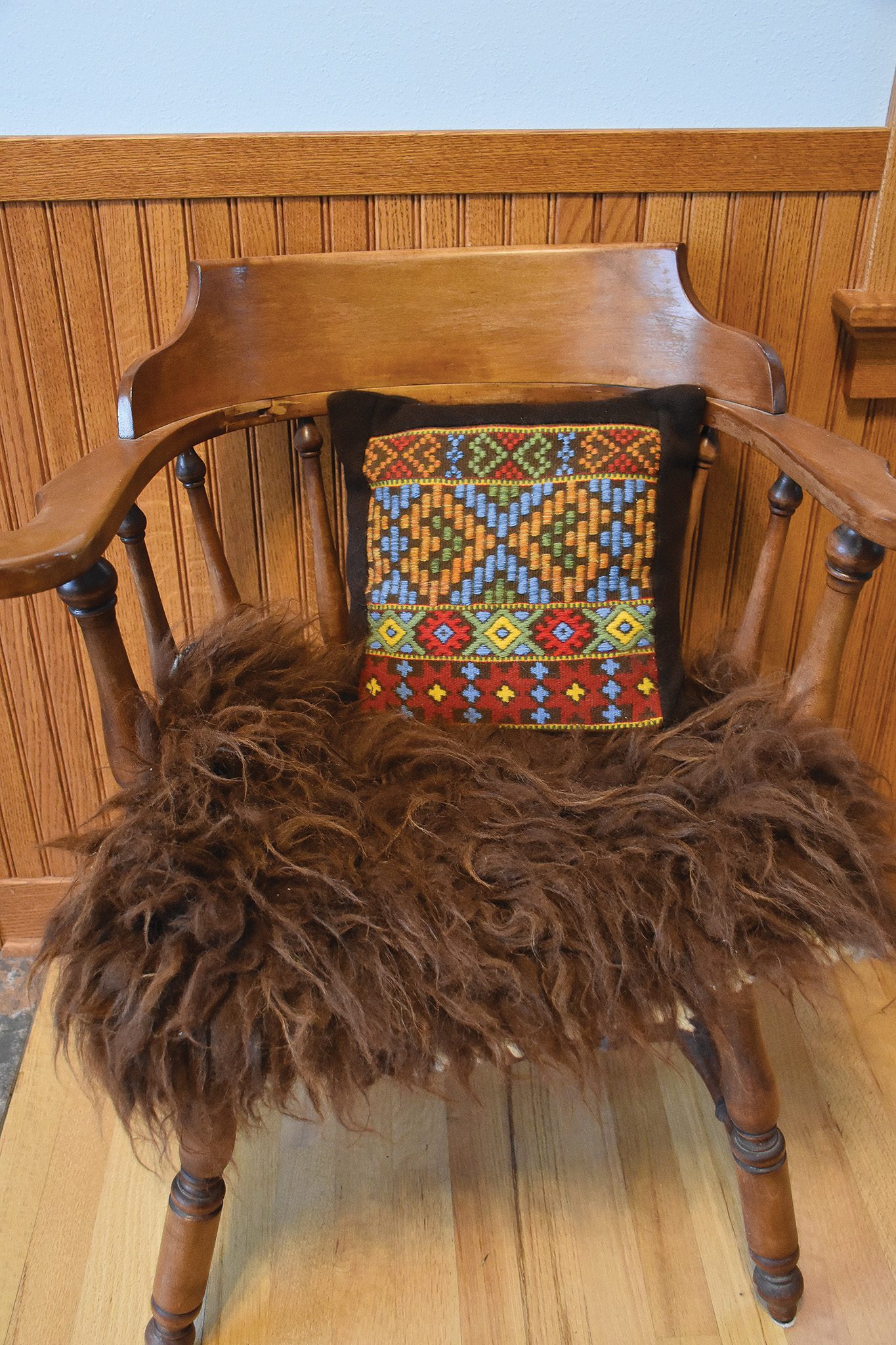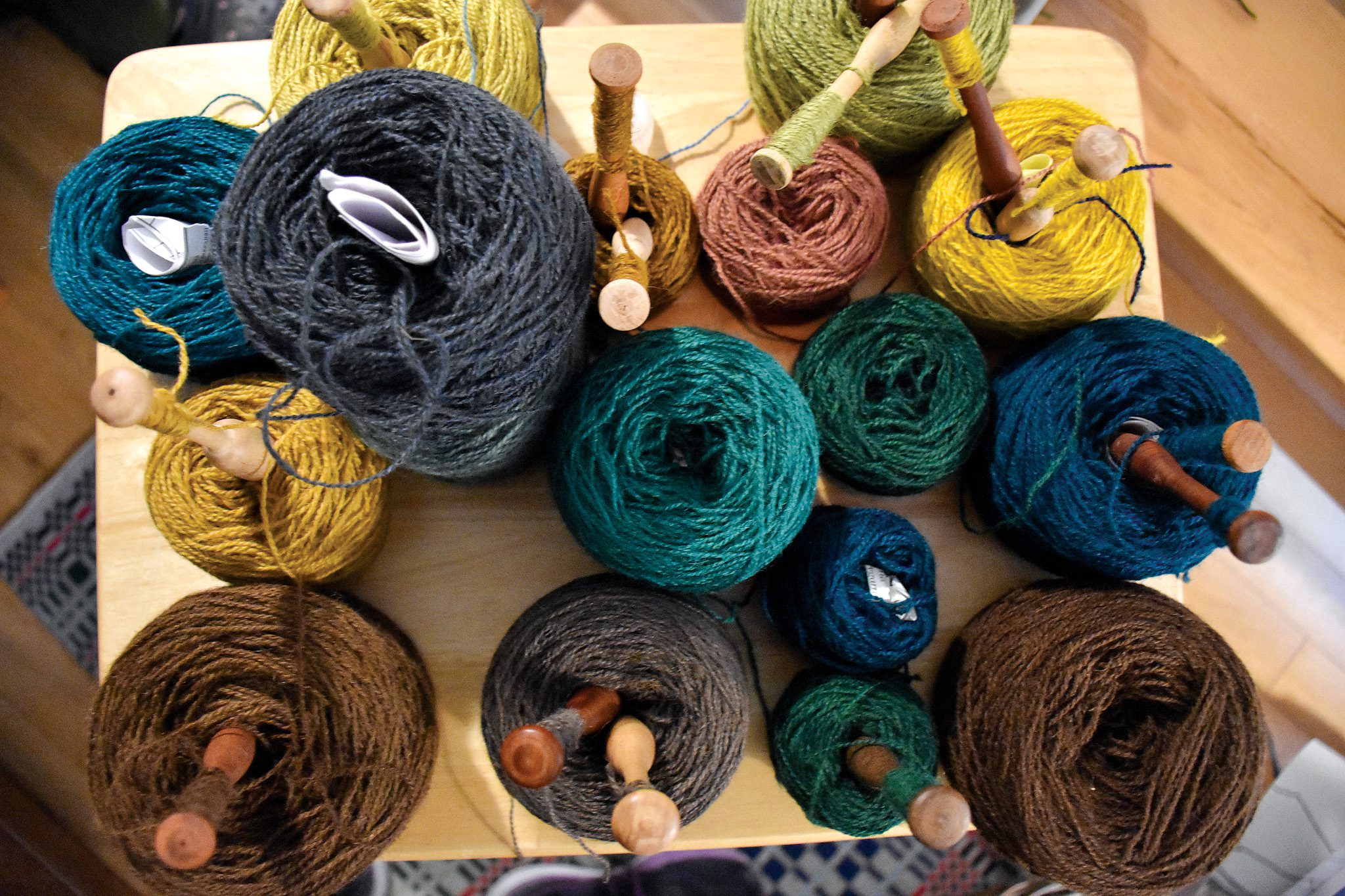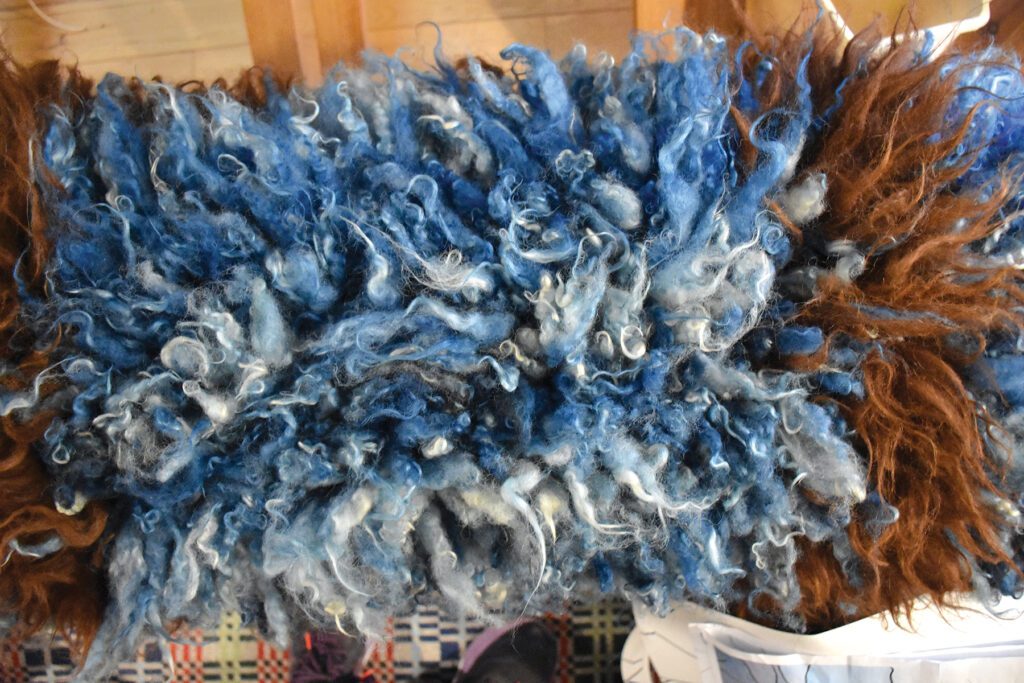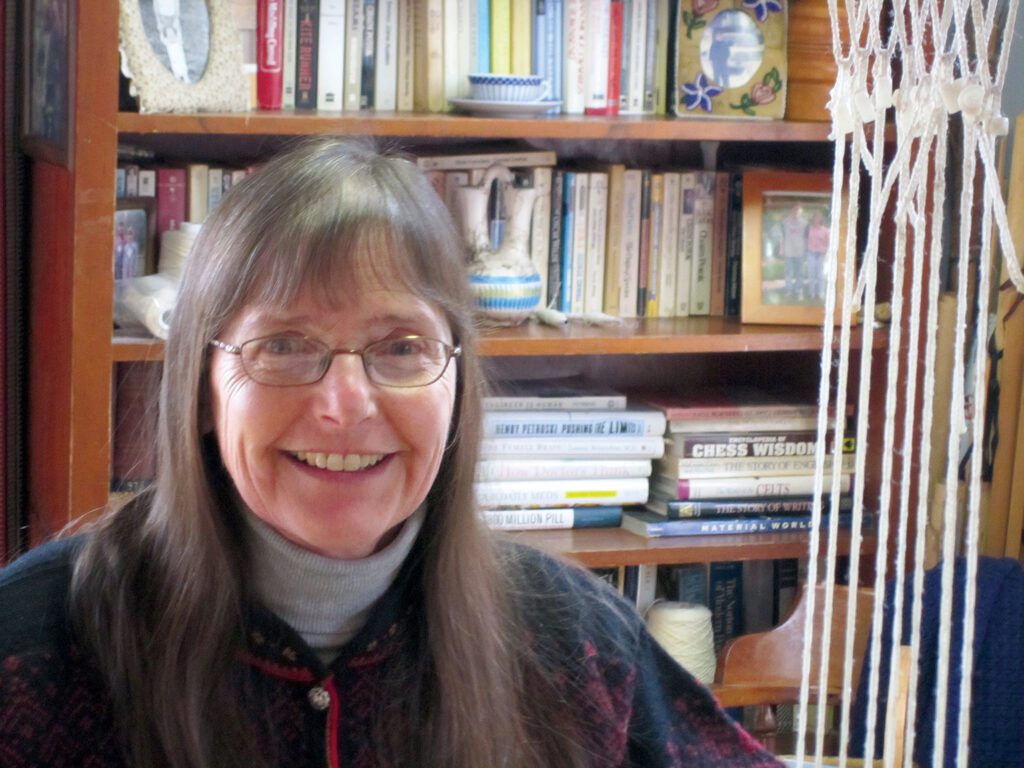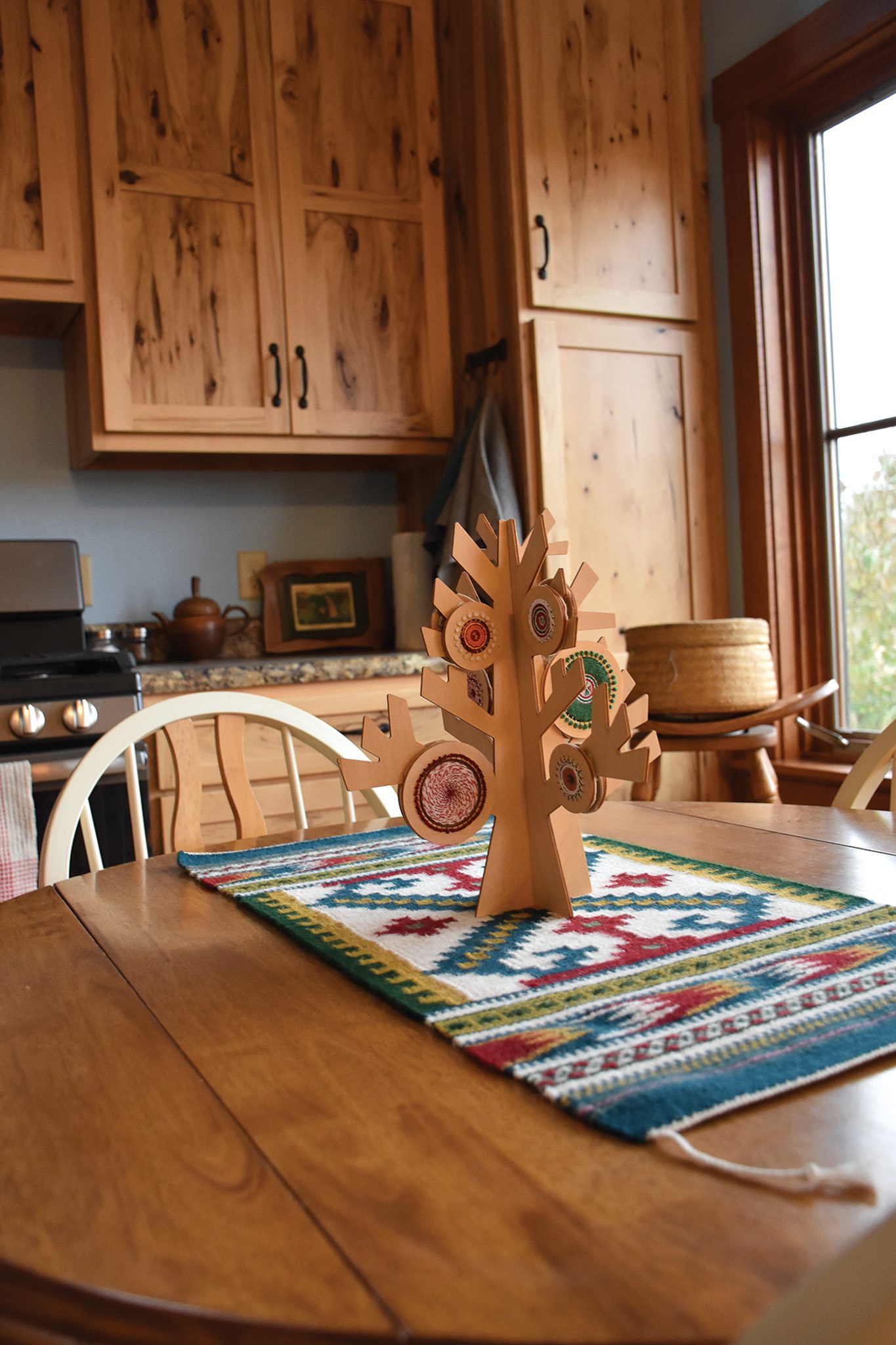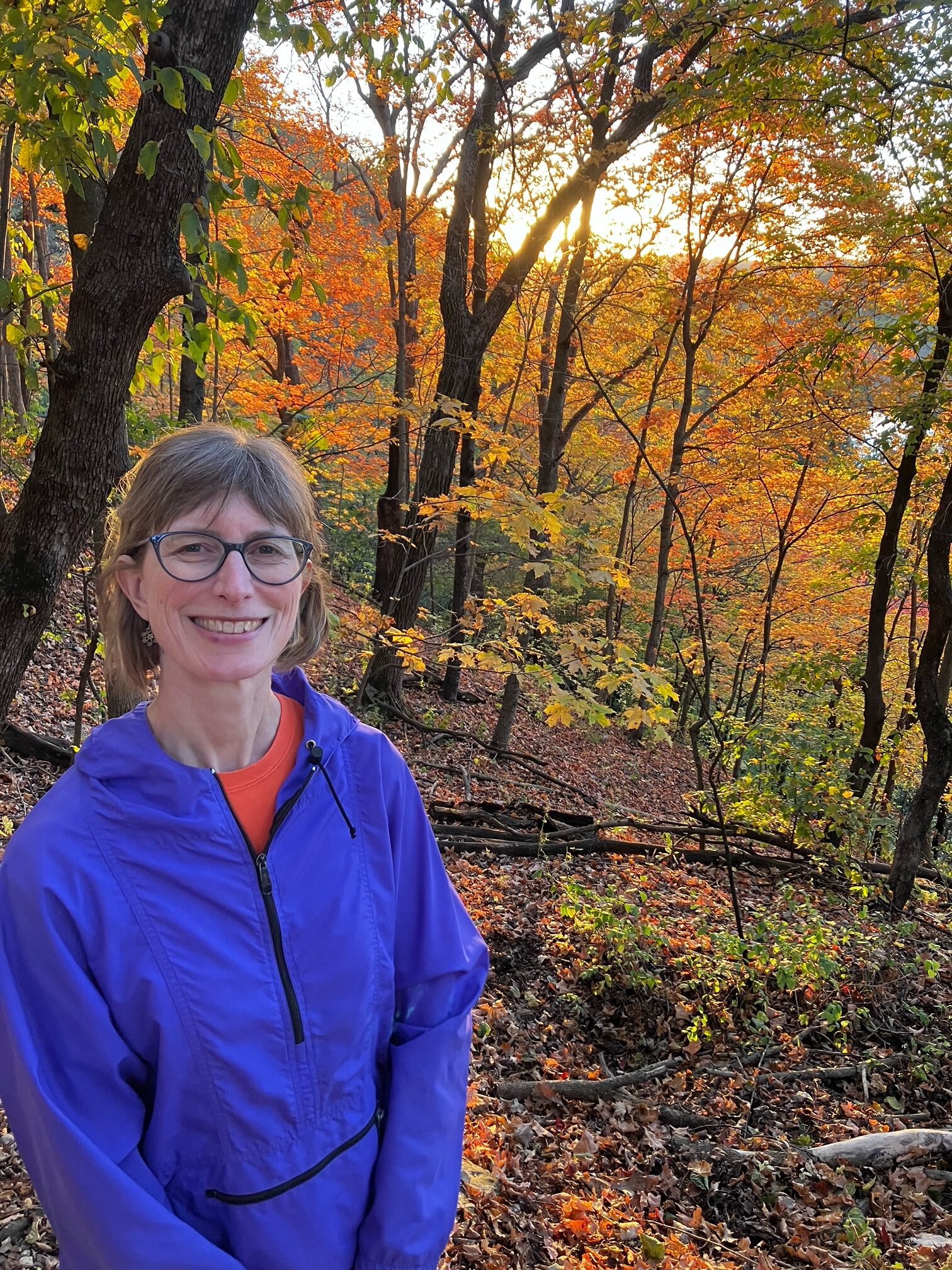
Cardboard Robot on Winnebago Street in Downtown Decorah is “your friendly neighborhood making-stuff store.” It’s a place filled with creativity and inspiration – art supplies, science toys, craft kits, nice paper and journals, and lots of nice pens (and other good stuff too).
“Everything we sell takes some creative input – building, writing, doing. One of the examples I often give is that we don’t sell greeting cards, but we do sell blank cards and envelopes that you can make into a thoughtful and personal greeting card,” says owner Eric Sovern.
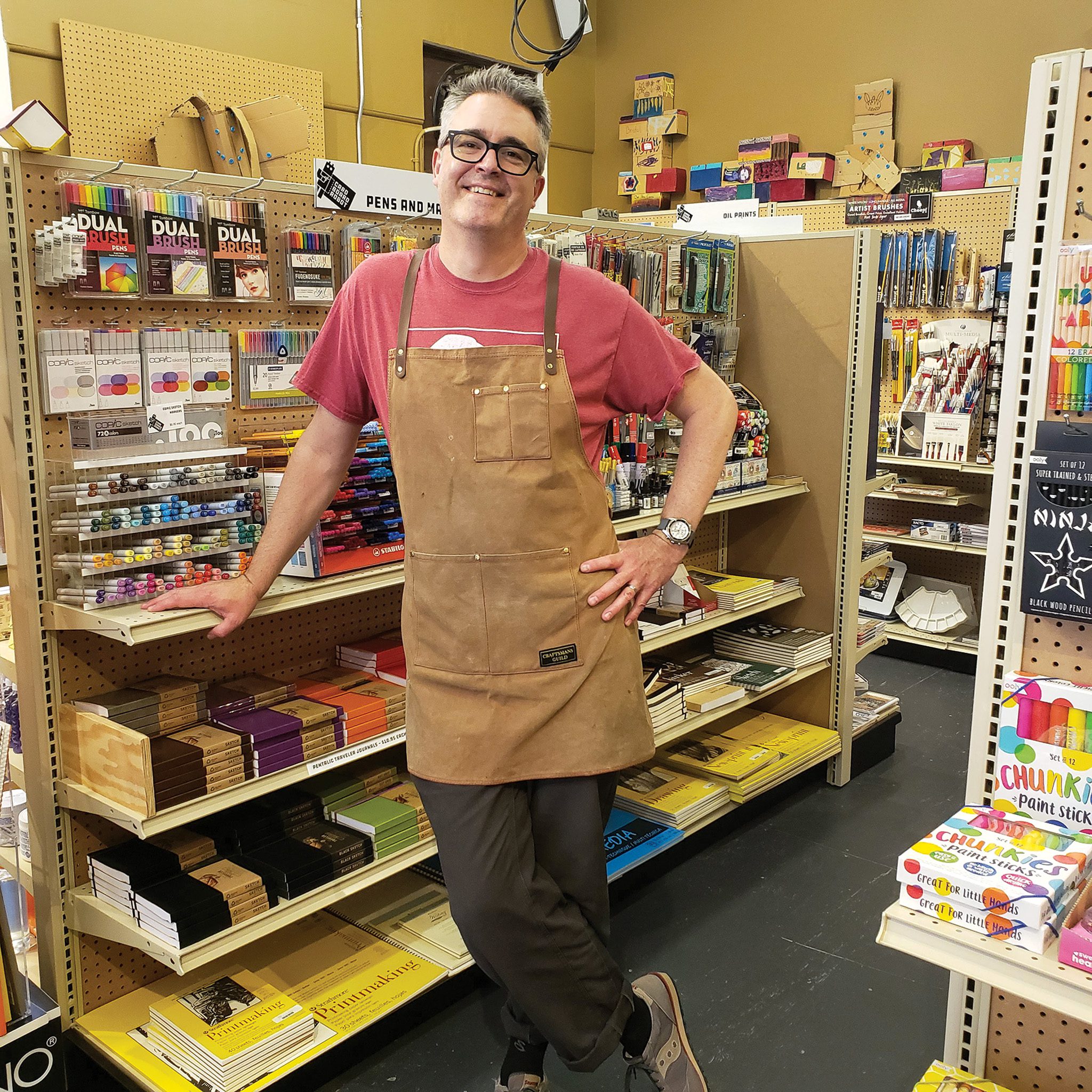
Eric and his wife, Shannon Horton, moved to Decorah from the Twin Cities in June of 2008. They had just had their son, Jack, in 2007, and Eric was able to work remotely at his job for Surly bicycles.
In 2011, the Decorah community was lucky to name Shannon as the new Decorah Middle and High School librarian, and in 2017, Eric and Shannon jumped into the entrepreneur world by opening Cardboard Robot in Decorah.
It’s a family business through-and-through. “Jack turned 17 in August of this year. He’s a senior. When we started the shop, he was 10 and loved giving people tours of the store when they came in,” Eric says. “Best salesperson ever.” And the work Shannon does at the schools goes hand-in-hand with the mission at Cardboard Robot, funneling ideas to engage young people in creative endeavors.
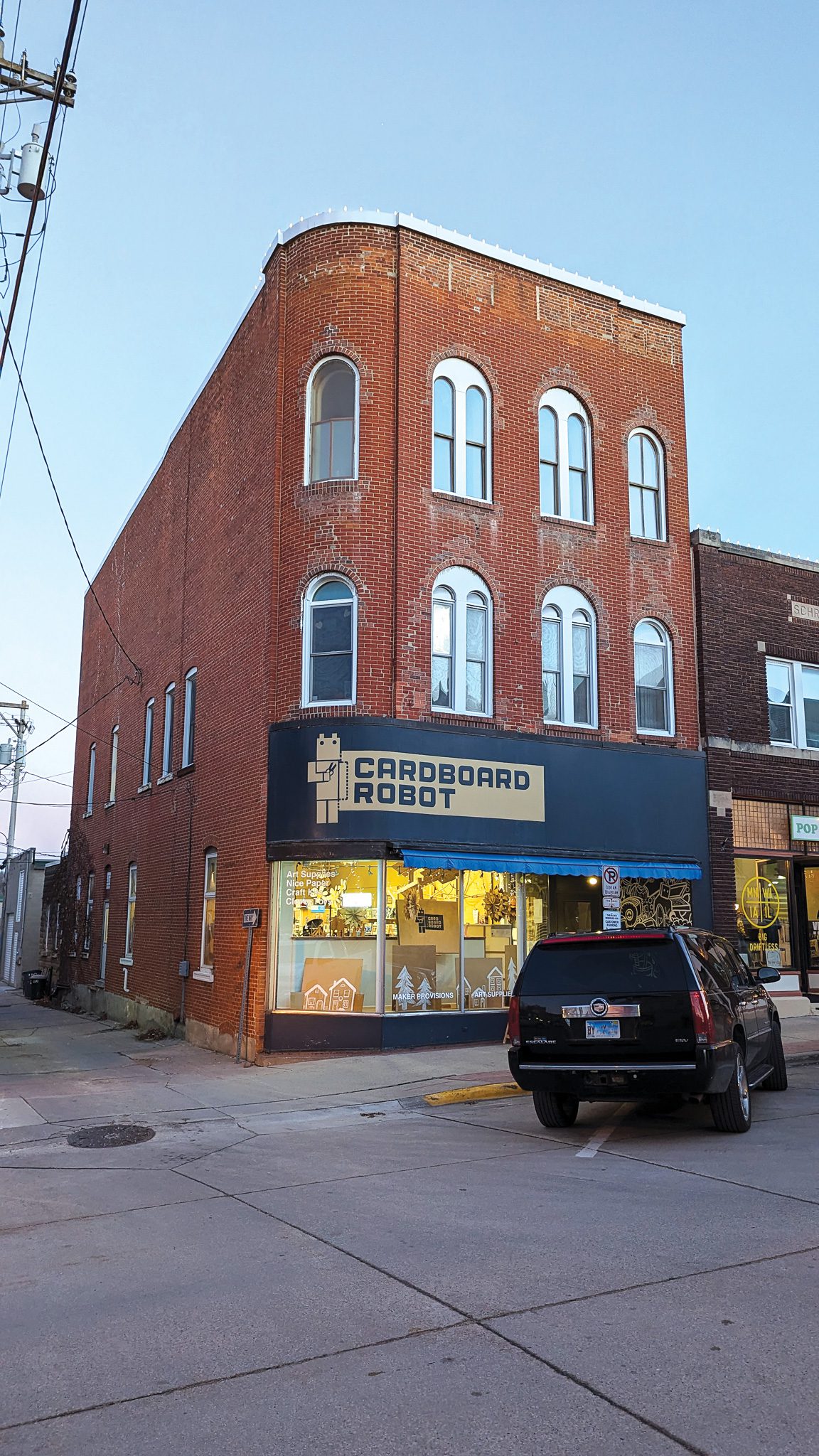
The Cardboard Robot building sits tall on an alley corner midway up Winnebago (a street that gets more rad by the minute). The front door is sandwiched between an always awesome (often cardboard) window display and a cool black-and-white mural. Inside, the 3D printer is generally humming away, making something neat in the background while Eric is busy helping a customer or putting together a CardBored Box in the back workshop.
What’s that, you ask? The CardBored Boxes are Cardboard Robot’s own brand of everything-you-need activity kits. Packaged in a box you can turn into your very own cardboard robot; each kit is a complete maker adventure. Current offerings include the Helm of Brilliance – a DIY headlamp including a small circuit board; the (Hold Me Closer) Tiny Stamper – with a Speedball linoleum carving tool and pink eraser to make your own stamp; and the Fun Size Art Gallery – three mini canvases and supplies to make a “wee art show” (including two 3-D printed figures ready to admire your work).

While Cardboard Robot is a great place to find presents for birthdays and holidays alike, Eric wants folks to remember creativity is a gift for yourself, too. Creative work is all about the process; you don’t have to be good at it to do it. It’s the doing it part that often holds the most beauty.
The Basics:
Name: Eric Sovern
Age: 55
Business: Cardboard Robot
Year Business Established: 2017
Business address: 110 Winnebago St Decorah
Website: cardboardrobot.biz
Tell us about the “leap” moment. When/how did you decide to jump in and become your own boss?
From what I know, a lot of business owners are living out a dream they’ve had for a long time to own a business. Maybe it’s odd, but that’s not been my experience at all. I had never planned to open a retail store for people who make things. Instead, I think I’ve lived a life that has somehow led me inexorably to opening a retail shop for people who make things. So, in that sense, there was no “leap moment” so much as a long slow decline into entrepreneurship.
I think Cardboard Robot is the culmination of the jobs I’ve done, the hobbies I’ve tried, and the desire for the kind of weirdo clubhouse of creativity that I wasn’t sure existed anywhere. I was a teacher for a few years, and I worked in the bicycle industry for a lot of years. Both of those careers involved a lot of creativity and trying to do something worthwhile. Also, in 2007 we had a kid. There’s not much that will keep you on your toes trying to figure out cool things to build, make, and do more than trying to keep a six-year-old entertained.
Shannon, in her role as librarian, started a maker space for Decorah Middle School, and that became a huge inspiration for the store we eventually created. Watching students light up when asked to build something is a powerful thing.
Honestly, the store itself is a pretty equal two-scoop helping of Shannon’s great eye for cool things people might want and my love of the jumbled hobby store. I love it so much when people come in and have an idea of a thing they want to make. I want to help with that. A mom came in one year frustrated that her daughter didn’t want any of the princess costumes that were offered for Halloween, but instead wanted to be a clothes dryer. Yes, please! Getting to help bounce around ideas about how that might work was 100 percent satisfying.
That’s ultimately the genesis of the store’s name, too. Making a weird costume for your kid can be so much more fun than just buying something. The Cardboard Robot really did happen in our basement – and it’s a symbol in our minds for getting creative.

What’s the weirdest request you’ve had at the store?
I did have a person walk 10 feet into the store once, look around for a solid 20 seconds from that spot, and then ask me if everything in here was made out of cardboard. I’ve also had people think we’re a shipping store that will package up your glass beer growlers and get them safely across the country.
What do people come in for all the time?
Pens and journals. I love pens and journals, and so do our customers. The simplest form of creativity happens when you grab a writing instrument and face a blank page.
What’s the best thing about being your own boss?
I love not having to ask for permission to do a thing. I’m a pretty spontaneous person generally, and planning ahead doesn’t always come naturally to me. So, now, when an idea strikes, I can just go with it. I don’t have to run it through a committee or have a meeting. That feels pretty cool.
How about the worst?
The fear of failure can be paralyzing. “What if people don’t like this?” I mean, I feel like the store is a pretty good representation of what I like and who I am. If people don’t get it, or don’t like it that feels personal. I get that it’s not, but still…
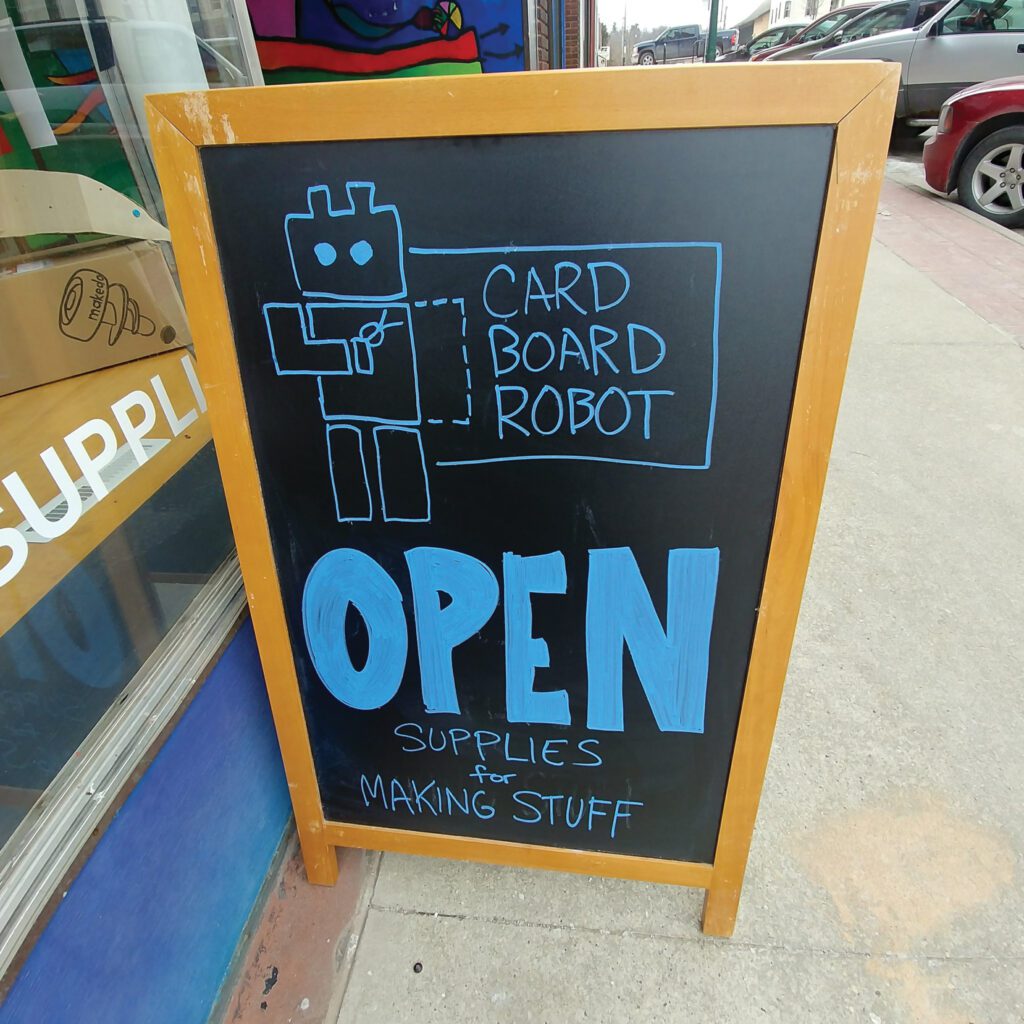
Any mentors/role models you look to/have looked to?
I once worked on a crew painting dorms in the summers while I attended the University of Iowa during the previous century. The boss was a younger guy just a few years older than I was who had taken over the business from his uncle. He was the sort of person who wanted to teach you to do a job, to do it well, and to be proud of the outcome, and that made me want to work hard just so he would make money. It was from him that I learned that what job you did wasn’t really the important thing. What mattered was working hard and working with integrity. “Paint the parts that nobody will ever see and do it well because it’s the right way to do it.”
I also come from a line of entrepreneurs and idea people. My parents are both people who hatch plans and go for it. Both of them went back to school later in their careers and were never afraid to change course and follow a new path. That’s an amazing lesson to have learned and I will always be grateful for them. Having a belief somewhere inside you that you can do just about anything is pretty powerful, and I’m grateful to my folks for instilling that.
What’s the one thing you wish you had known before you started?
I wish I knew at the beginning how to better ask for help. I think I still need that. There are so many parts to running a business, and I’m pretty sure it’s impossible to be good at all of them – though, I think I have tried. It really does help a ton to lean on the skills of the people in your life. I couldn’t be happier when someone asks me for help, but it can be difficult for me to do that myself. I suppose it may be the most Midwestern thing about me. I’m still working on this.
How do you manage your life/work balance?
Working at Cardboard Robot is something that I really do enjoy. I’m mostly able to separate myself from work for time with family and friends. But that doesn’t mean I don’t wake up at 4 am thinking about shelving or how many bags we have left. We originally moved to Decorah from Minneapolis 17 years ago to reduce commute times and feel more connected to our community and our kid. I think that has worked out pretty well for the most part. This might also be a good question for Shannon to answer.
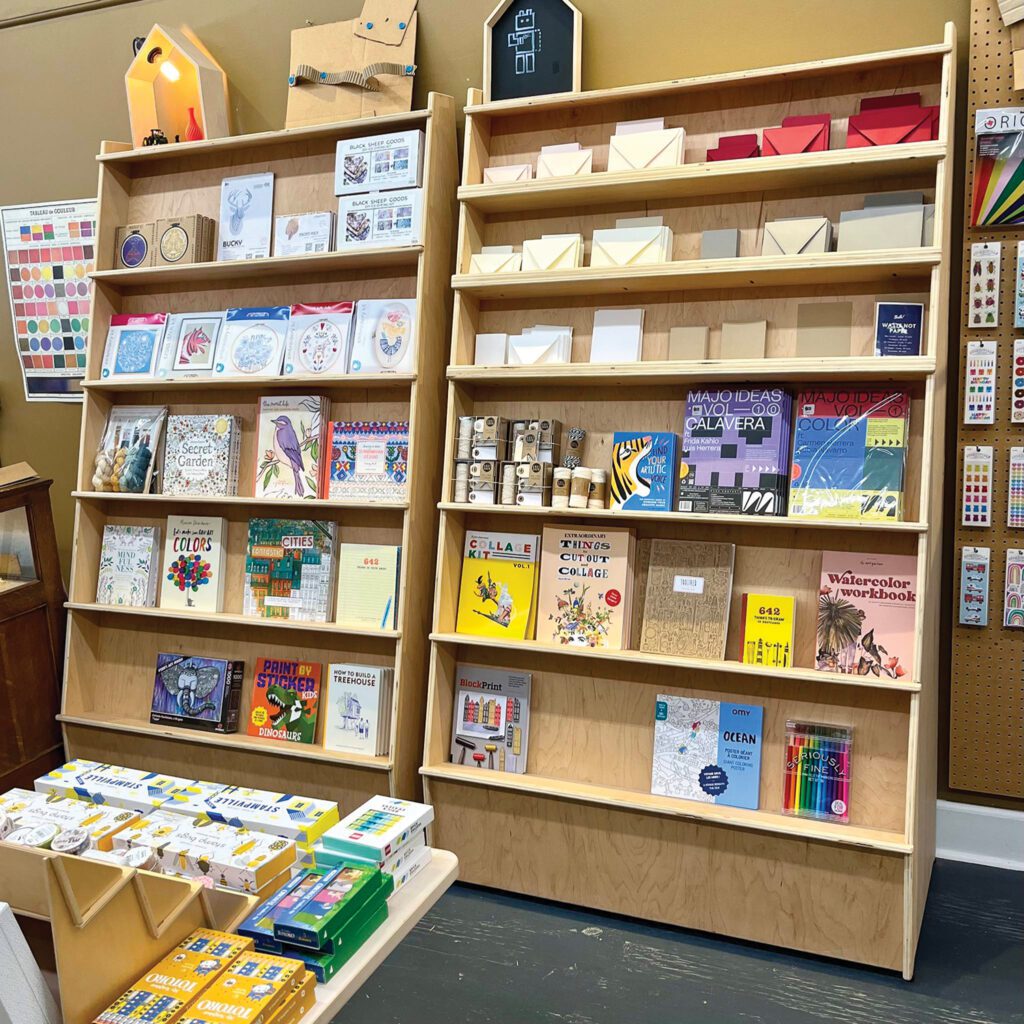
What keeps you inspired?
The inspiration for this venture comes directly from our customers. I love that we have regulars who get supplies from us to make amazing things. It’s also energizing to talk with Decorah’s visitors and find out where they’re from and what they do. During a lot of conversations I have with these folks they will pull out their phones to show me pictures of the art or craft or cardboard fort they’re building or making. Seeing that and hearing people say how much they appreciate having a place that supports creativity is the fuel that keeps this bus on the road.
What do you wish people knew or believed about creative work?
The thing I least like to hear from people is, “I’m not an artist,” or, “I’m not crafty.” I think people actually believe that you are either born with the natural ability to make beautiful things, or you are not, and are forever relegated to a life of blandness. Everyone is an artist. Everyone can make things. You may not be able to paint the Sistine Chapel ceiling, but that’s a good thing because it’s already done, and I think you’d get in trouble. Michelangelo didn’t paint that on the first day he picked up a brush. He wanted to do it, worked at it, and got good at it. It’s the same as it is with everything. I’m no good at flying a plane, but that’s because I’ve never trained to do it or made it a priority in my life. I’m pretty sure I could learn to do it with training and practice. Some people have been doodling in the margins of every piece of paper they’ve held. That’s artist training, and sometimes they get pretty good at it. Art and craft work also doesn’t have to hang in a museum for it to have value. All it has to do is express something you feel inside and then make you feel good about getting it done.





